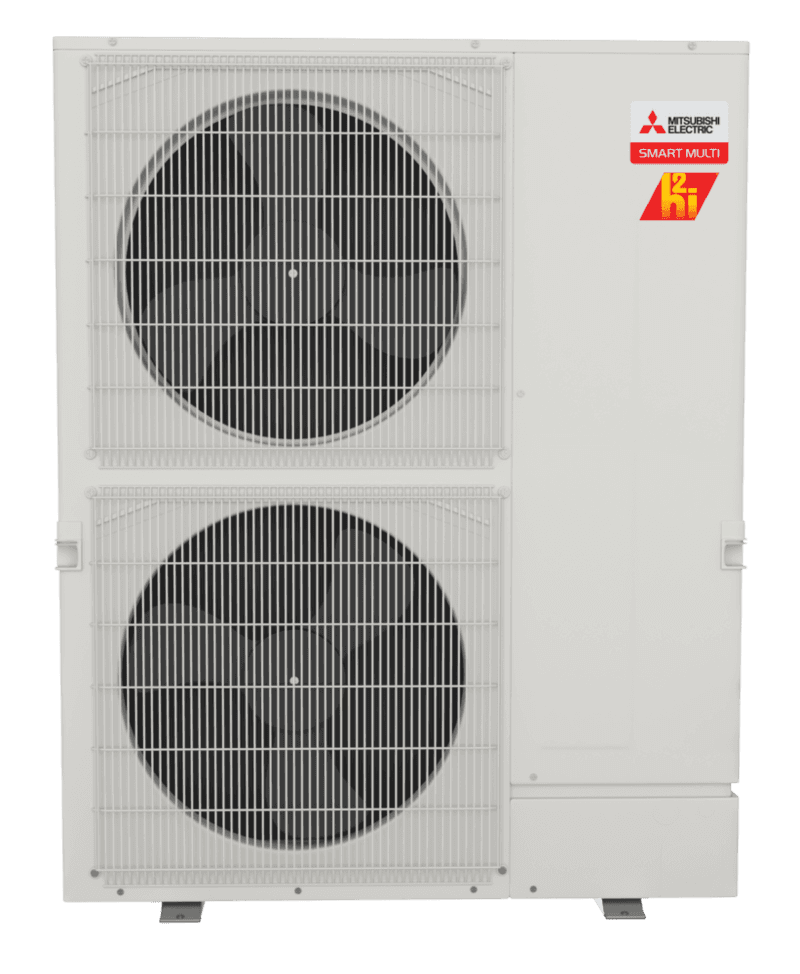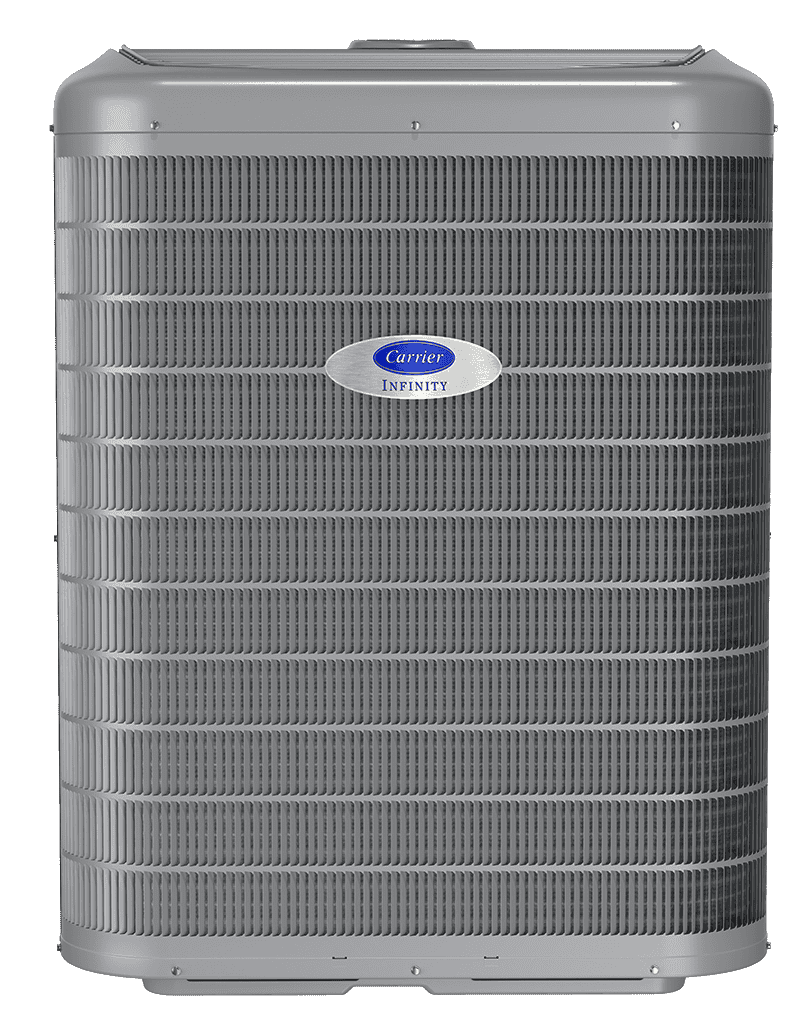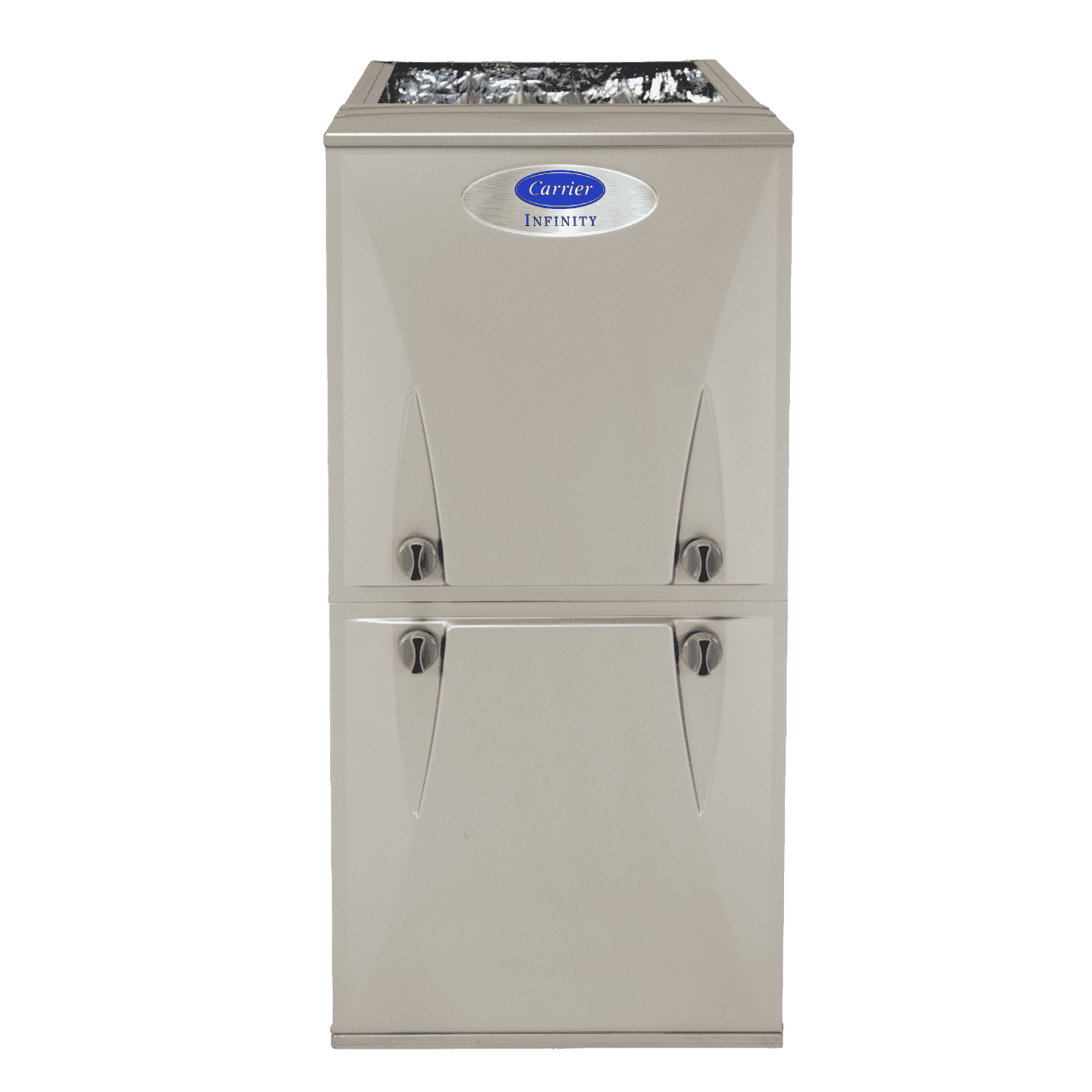The best heat pump installer in Colorado
Heat Pump Installation in Denver
We pioneered heat pump installations in the Mile High City before they were cool - literally. Now with massive rebates available, there's never been a better time to make the smart switch to year-round comfort.
Heat Pump Installation in Denver
Install Heat Pump in Denver, CO
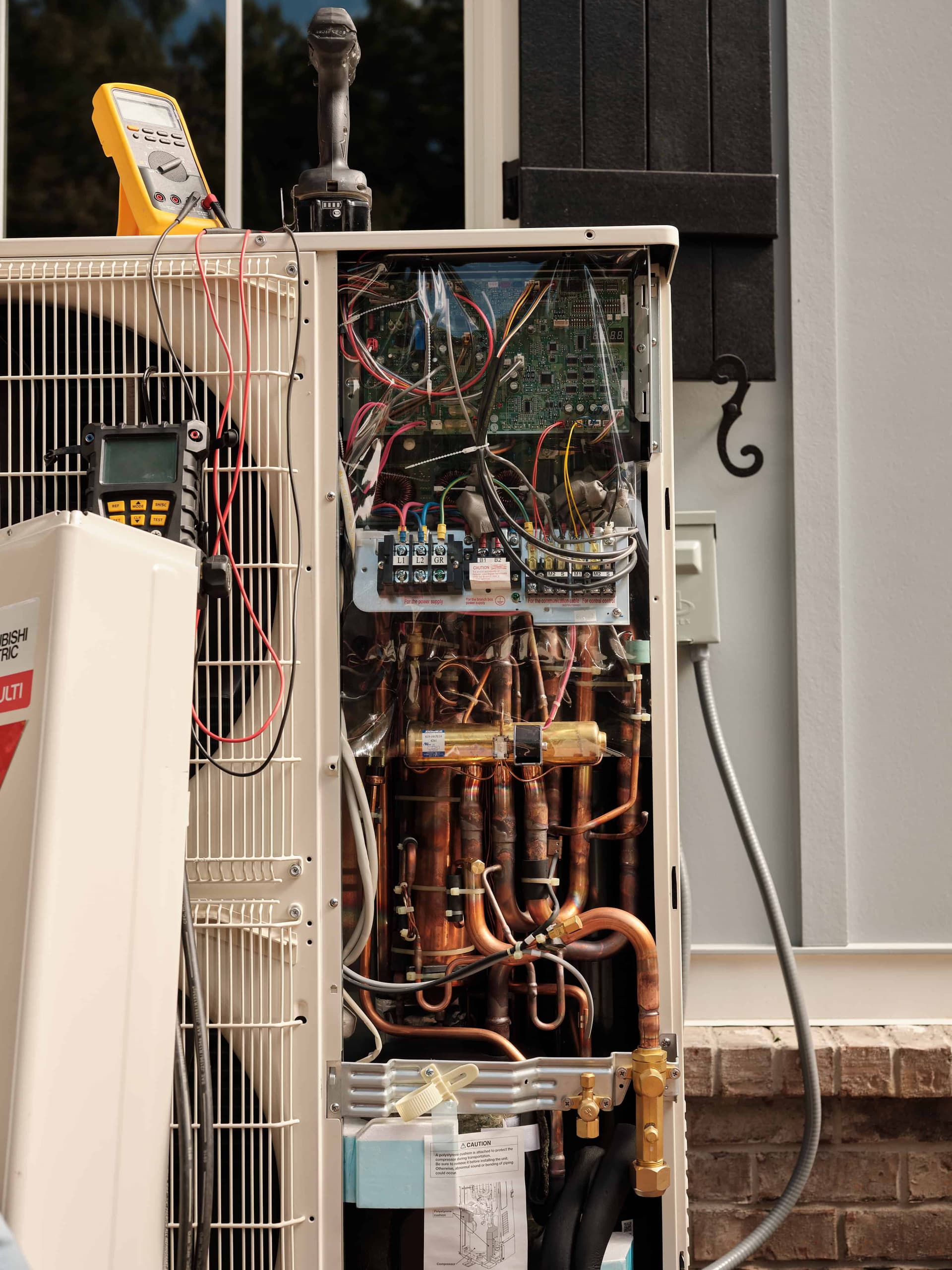
Heat Pump Installation in Denver
Free estimate for installing new centrally ducted or air source heat pumps.
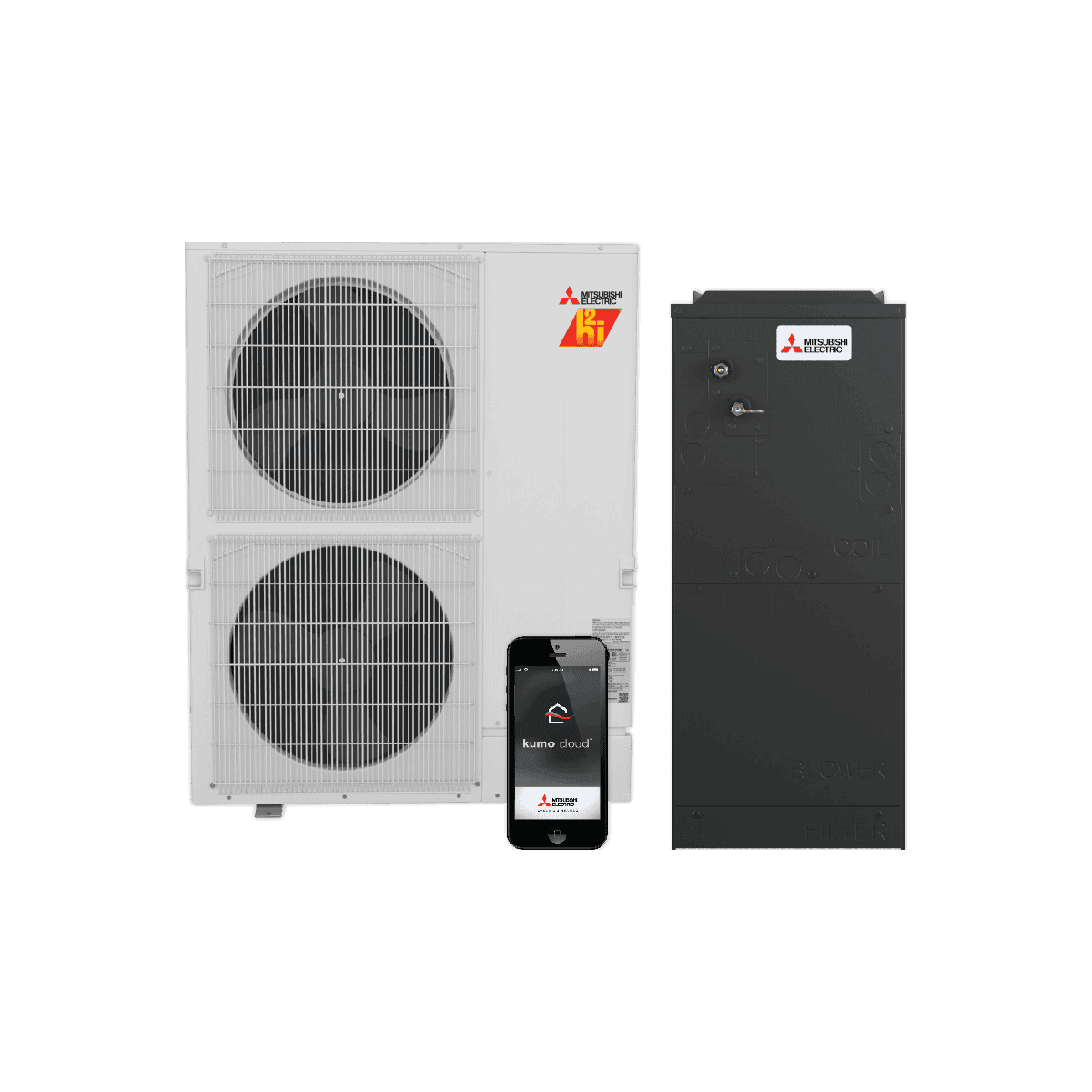
The basics
What is a Heat Pump?
The smartInvestment
Why a Heat Pump is the Right Choice for Your Home
Rebates Applied Upfront
Upgrading to a heat pump isn't just about efficiency: current rebates and incentives significantly reduce upfront costs. We apply Xcel, HEAR, and state credits as instant discounts on your invoice. A cold-climate heat pump can cost less out-of-pocket than a traditional furnace and AC combo.
Fits Into Any Home
Heat pumps work with most existing HVAC infrastructure. Whether you're replacing an old heat pump, furnace, or baseboard heaters, installation is straightforward. For homes without ductwork, ductless heat pumps make it easy to add efficient heating and cooling without a big renovation.
No Downside
With current Colorado rebates making heat pump costs comparable to a traditional furnace and AC, plus a lower carbon footprint, more even comfort, and quieter operation - why wouldn't you make the switch? Modern heat pumps work efficiently even at -13°F.
Energy Savings
Heat pumps use less energy than gas furnaces or electric heaters, lowering heating and cooling costs by an average of 15%, with potential savings up to 50%. With rising fuel costs, heat pumps remain one of the most efficient and cost-effective heating solutions.
Cost Comparison
Standard Furnace + AC
80% Furnace + 14 SEER System + Installation
Cold Climate Heat Pump
Air Handler + 20 SEER HP System + Installation
* Prices reflect Denver metro averages as of Q4 2025 – Q1 2026. Actual costs vary by installation complexity.
Got a Heat Pump Installation in Denver quote?
Tell us the equipment. We don’t need their price.
CompareModels
Standard vs Cold Climate Heat Pump
Older heat pumps stopped heating around 30°F. Modern cold-climate models with inverter-driven compressors keep heating down to -13°F. Most variable-speed units now meet ENERGY STAR cold climate standards.
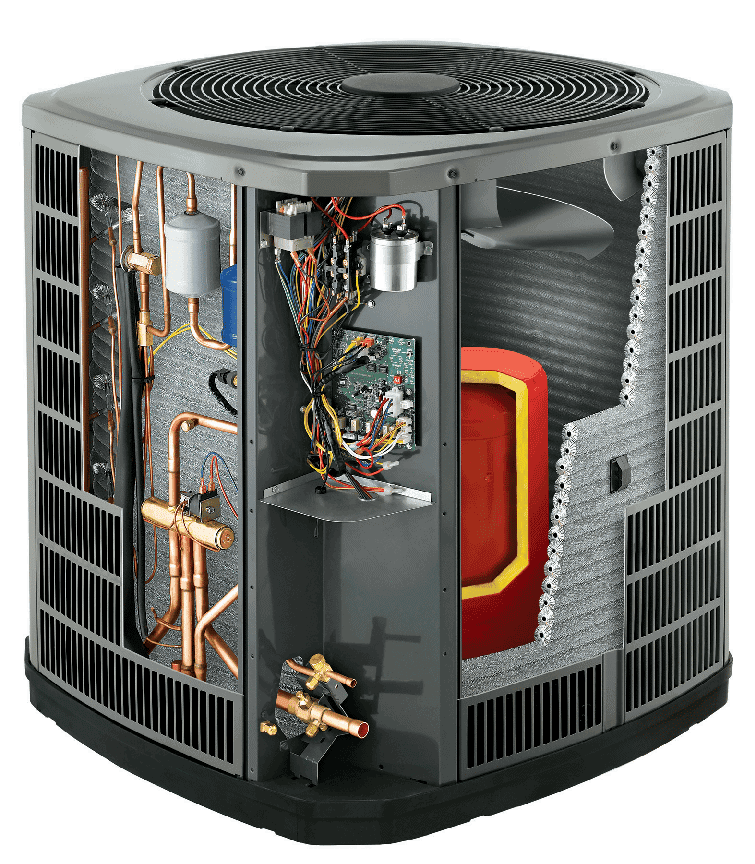
Standard Heat Pump
- 17° to 30°F switchover range
- Electrifies ~50% of heating
- Dual Fuel or Fully Electric
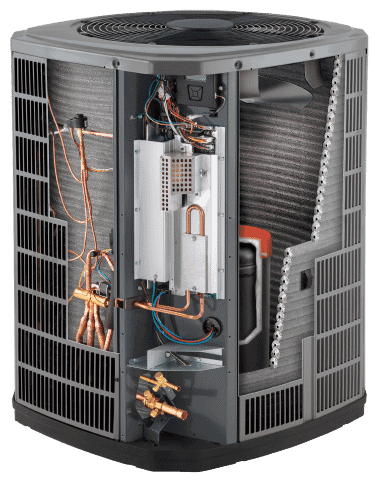
Cold Climate Heat Pump
- -13° to 0°F switchover range
- Electrifies up to 100% of heating
- Dual Fuel or Fully Electric
Your SatisfactionIs Guaranteed
Our Homeowners Love Us
We're proud to consistently achieve 100% homeowner satisfaction. That's the UniCo way.
Kent D.
We recently built an ADU and UniColorado installed our heatpump unit and we couldn't be happier with the process. They also helped us with the tax rebates/credits available and still offered a very competitive price compared to the other companies we vetted out. Would highly recommend.
Jeff M.
Installed Bosch Heat pump and found UniColorado personnel to be very knowledgeable and professional in sales and installation. Fairly priced and efficient in installation with excellent communication through the process.
Patrick B.
UniColorado did a great job replacing our old furnace with a new heat pump + backup furnace system. We've had it for a couple months and it's been working flawlessly. They had great communication and were very easy to work with. They also had the best pricing of all the companies I quoted.
Frances C.
I could not have asked for a better company: all communication was respectful, understanding and full of detailed information in response to specific questions. I was given on site photos, names and brands of products to research,, even links to apply for rebates, as well as payment options. Every part of the project was explained to me. The onsite project manner made a point of assuring me the exact placement I requested for cold climateheat pumps was guaranteed. I could go on and on. Suffice it to say: I highly recommend this exceptional state of the art company. Thank you.
Dave P.
These guys are fantastic! I found them after being turned off by the hard sell from another company. Professional--they listened, worked with me to meet my needs and ended up saving us a lot of money on a whole heat pump system. Quick, clean install... I'll be calling them from now on for anything heat related. I've already recommended them to a friend and its only been a week.
SaveThousands
Take Advantage of Heat Pump Rebates
We handle all the rebate paperwork for you. Most rebates are applied as instant discounts on your invoice - no waiting for checks in the mail.
WhyUniColorado
Colorado's Most Experienced Heat Pump Installer
We've put in over 10,000 heat pump systems across the Front Range, from full-electric conversions to dual fuel setups. We specialize in Mitsubishi, Carrier, and Bosch for their performance at altitude and in subzero temps. Every install starts with a Manual J load calculation, not a rule-of-thumb guess.
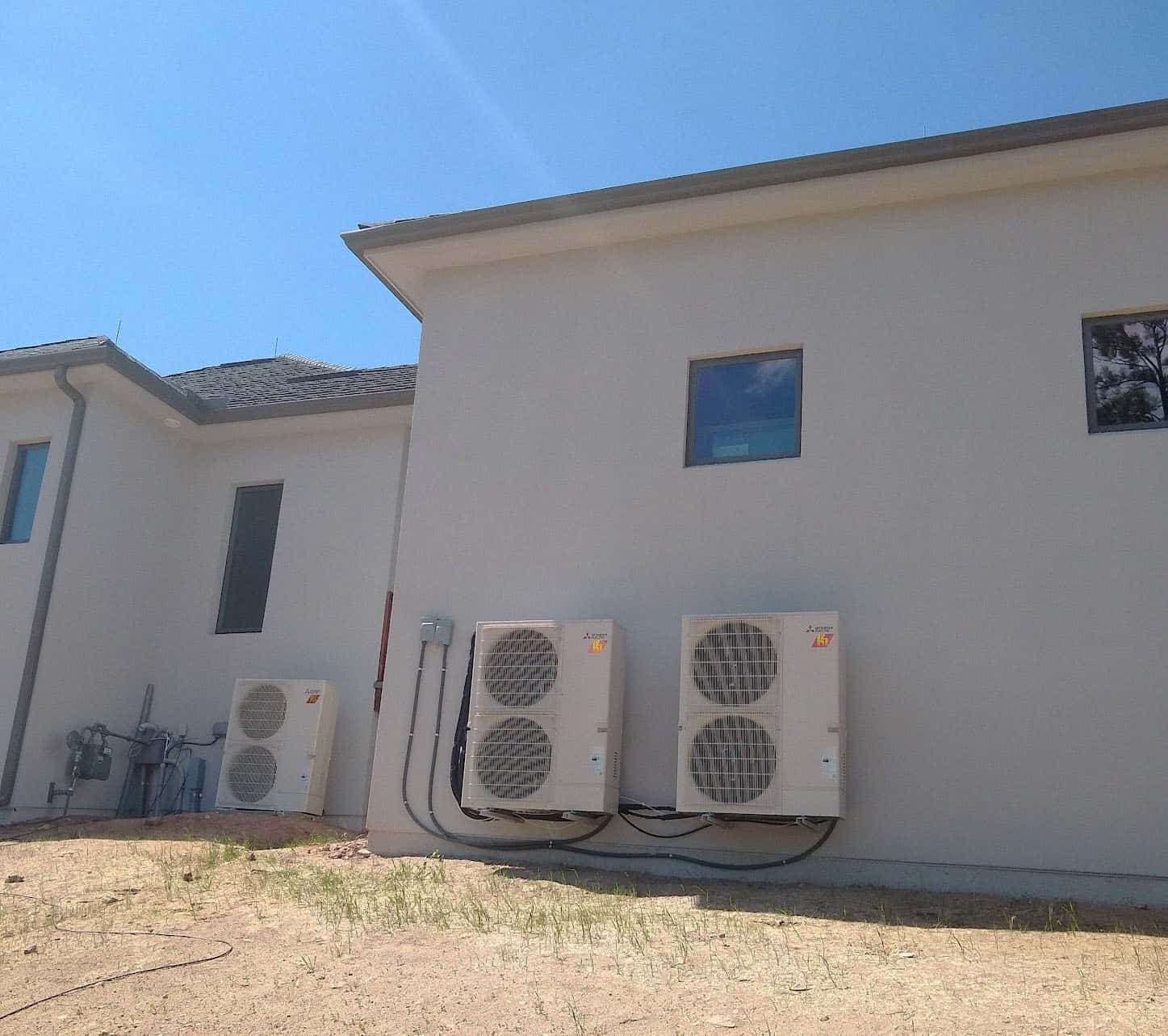
Our first hyper-heat install
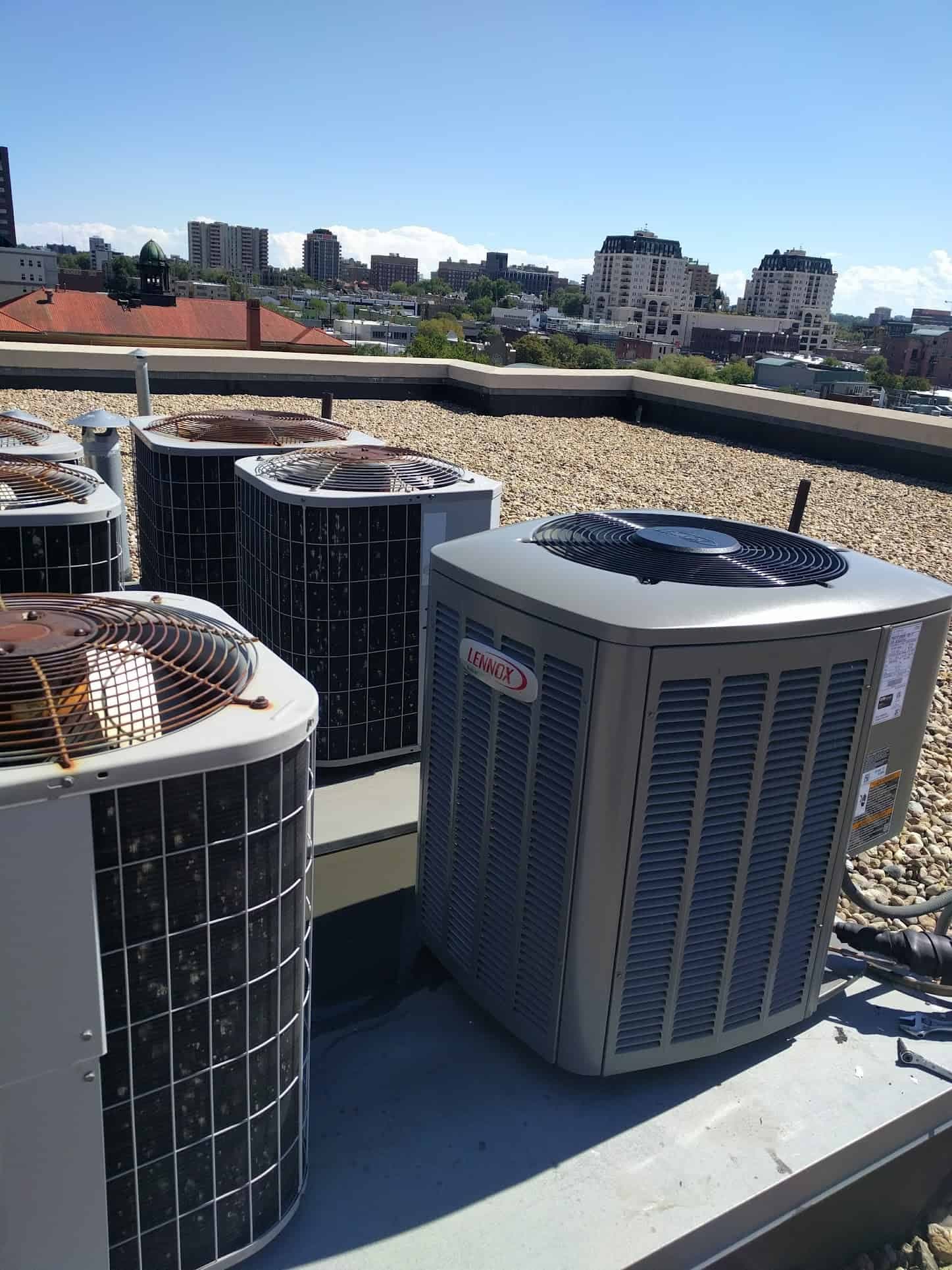
Early Lennox cold-climate adoption

Bosch IDS Ultra install
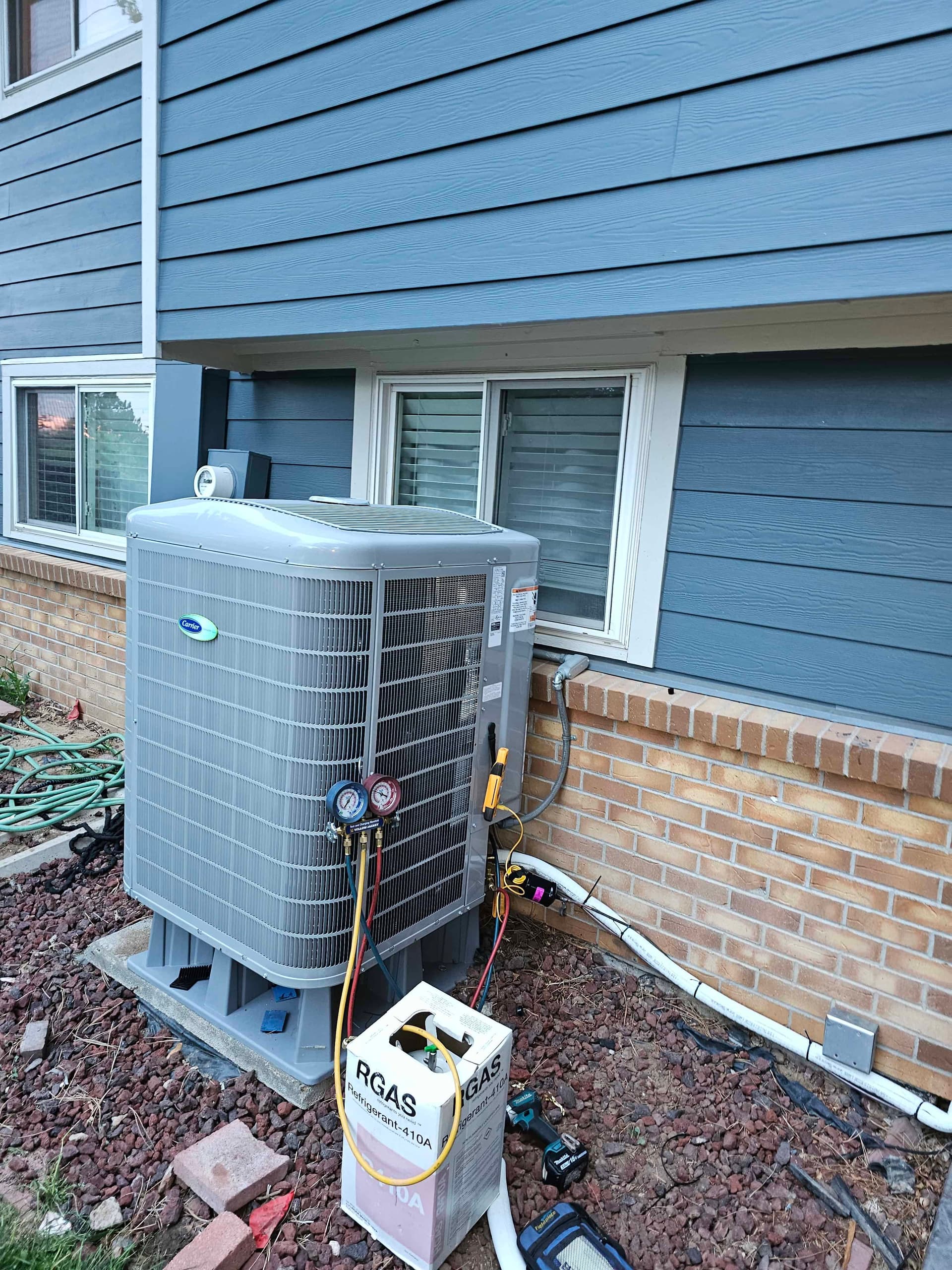
Latest cold-climate tech
30+
Municipalities
Master
Licensed & Certified
1000s+
Happy Homeowners
Heat Pump Certified
Technicians
100% Satisfaction
Guarantee
Up Front Pricing
No hidden fees
$5M+
Saved for homeowners in 2025
$9,250
Average savings
5,000+
Rebate applications submitted
SeeOur Installations
Our Work
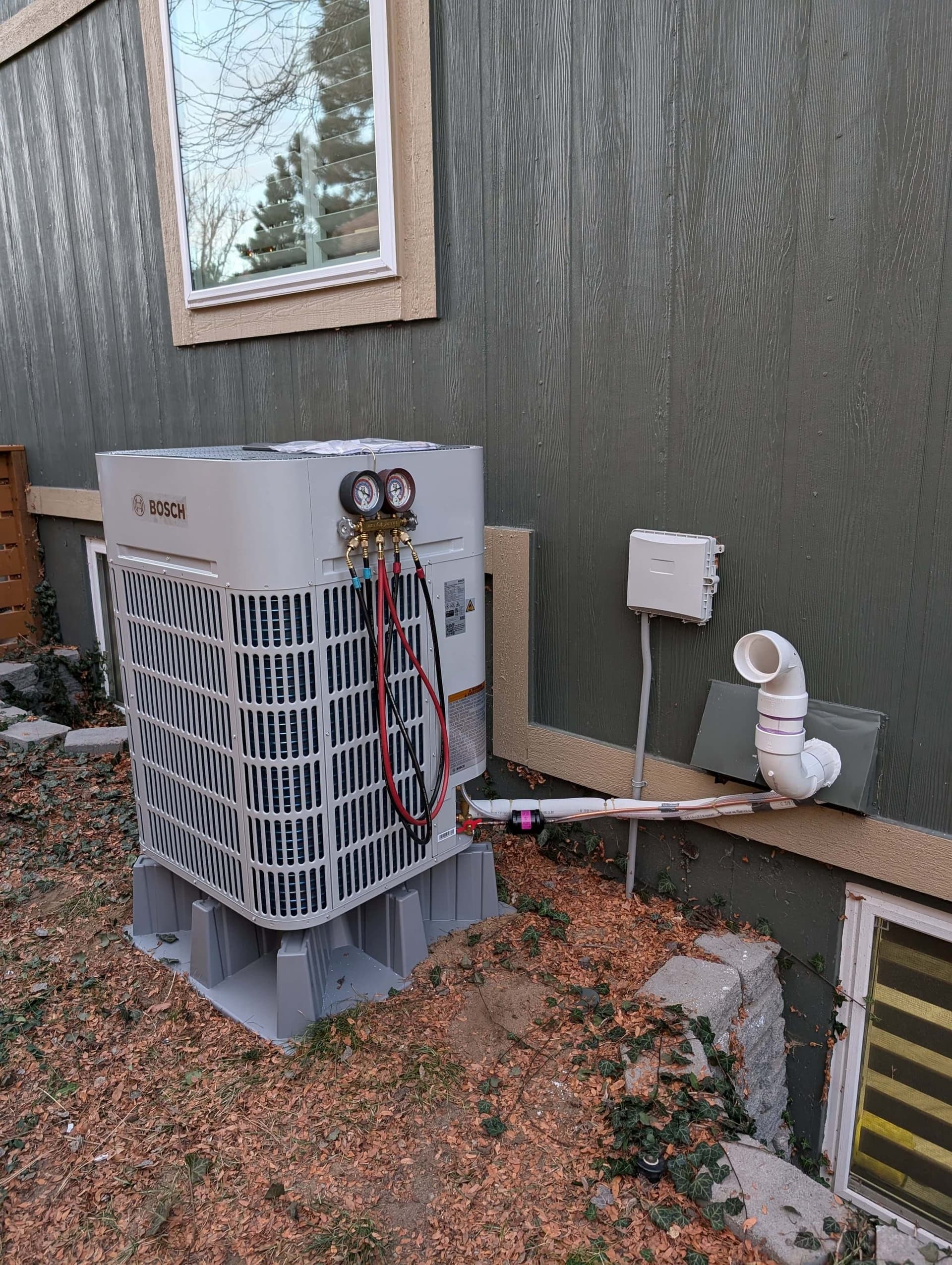
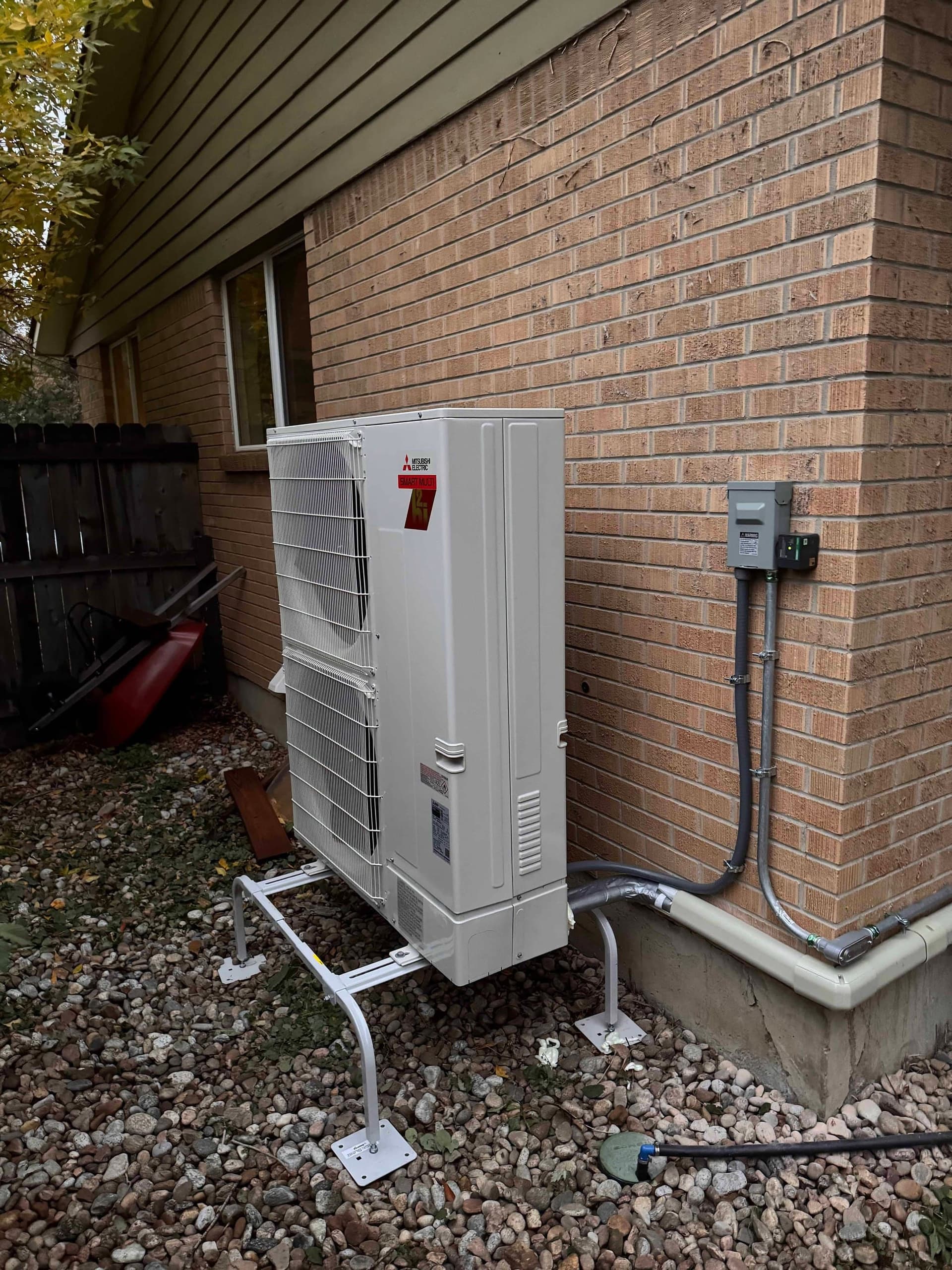
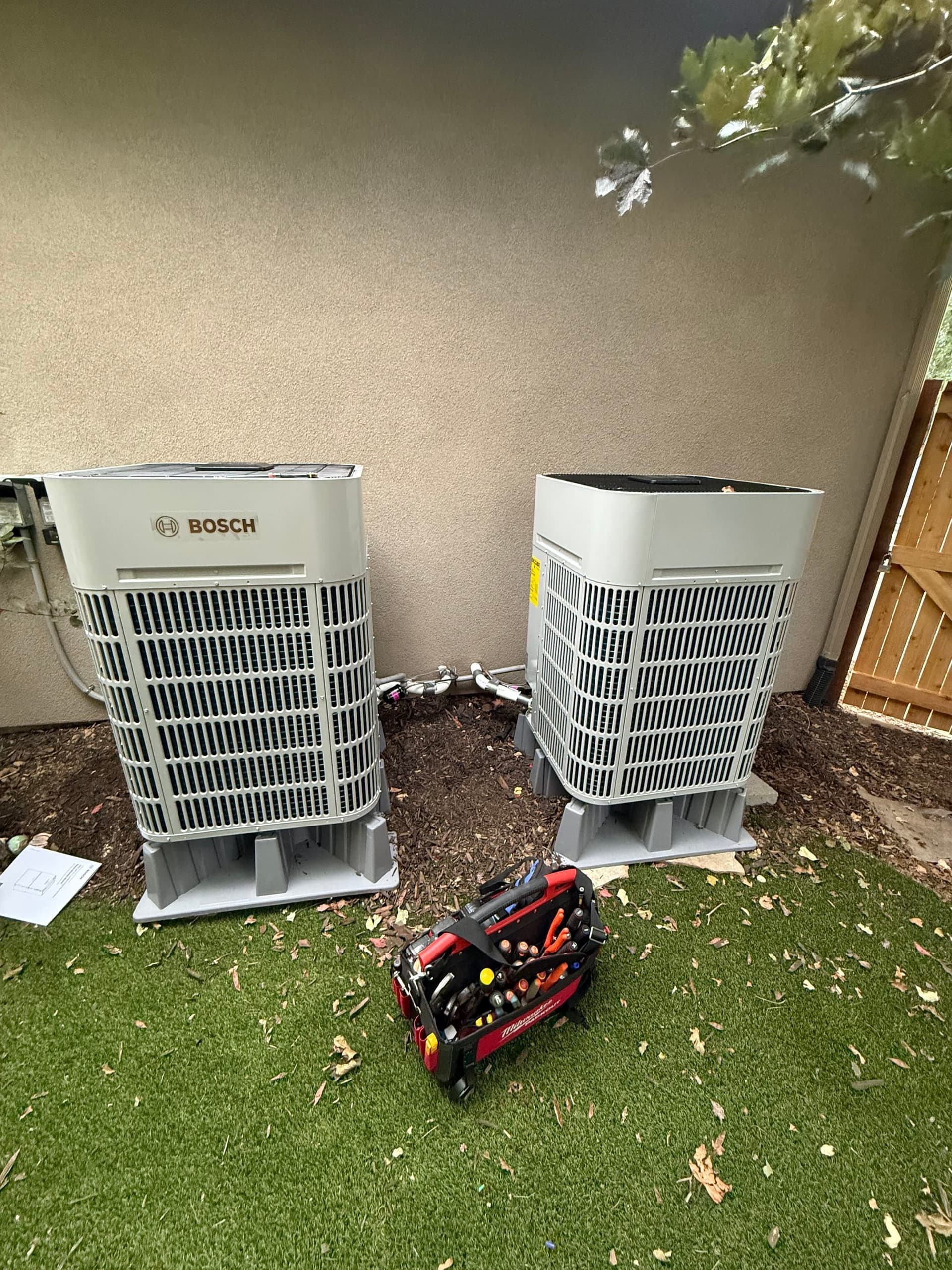
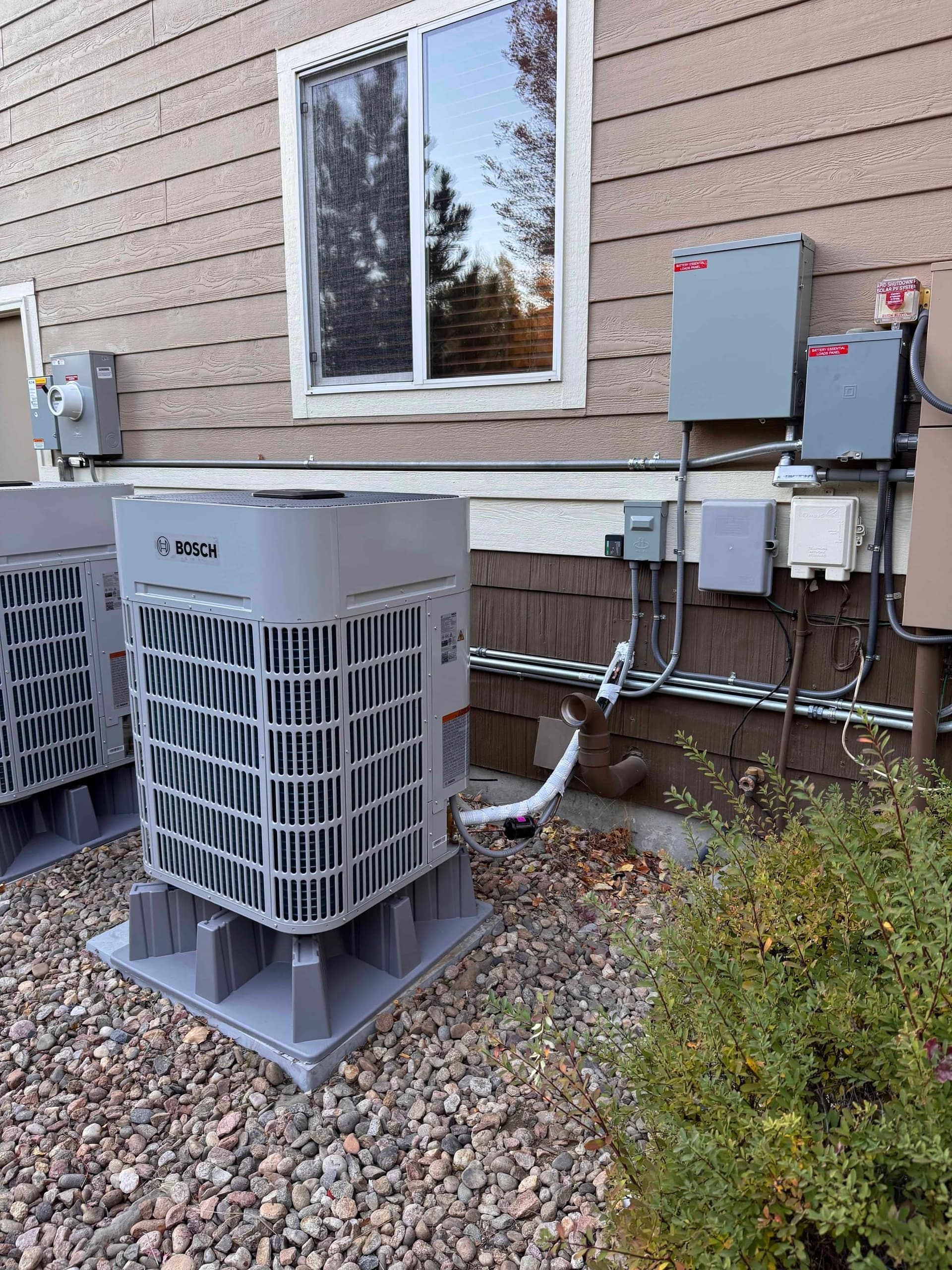
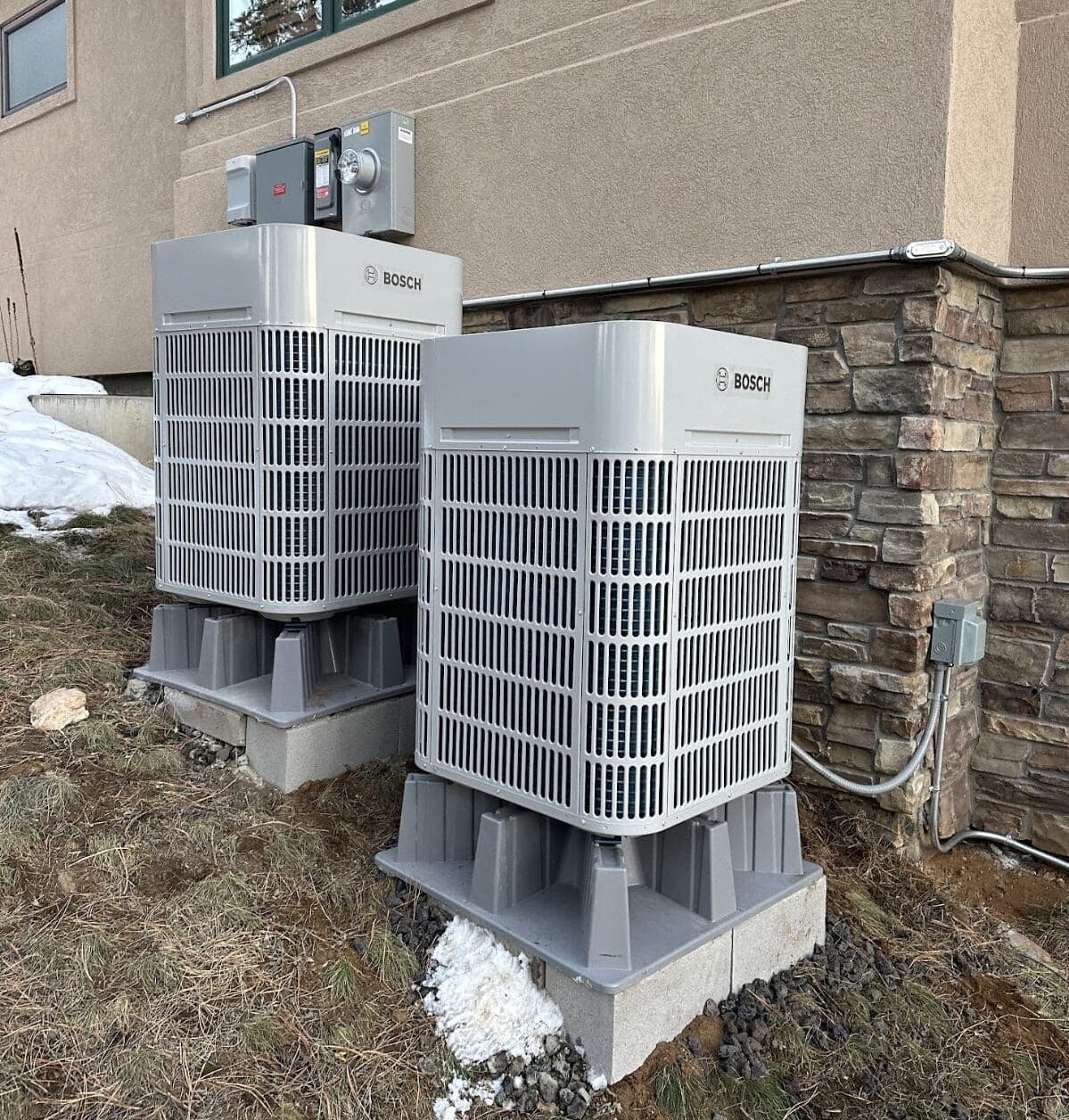
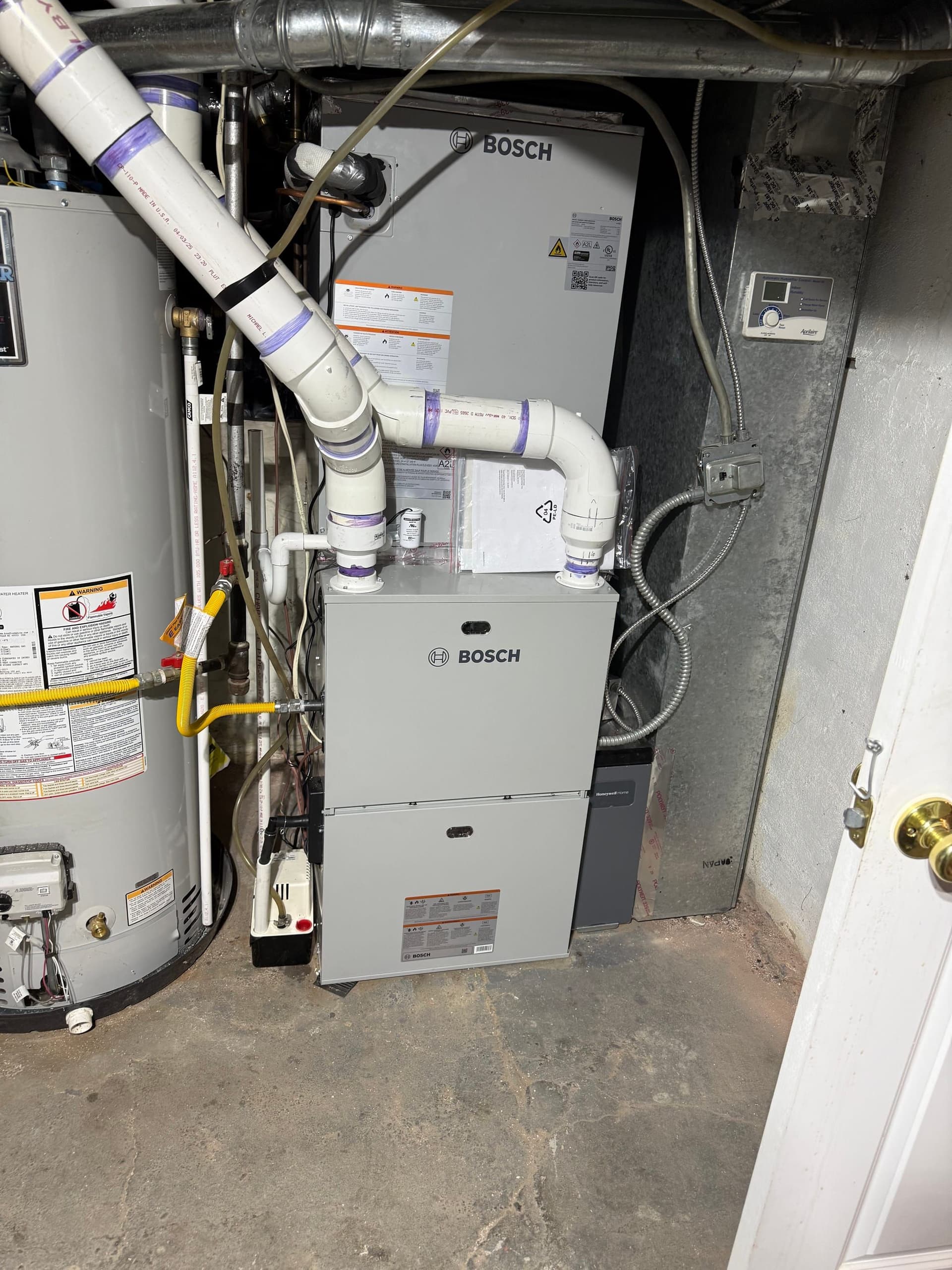
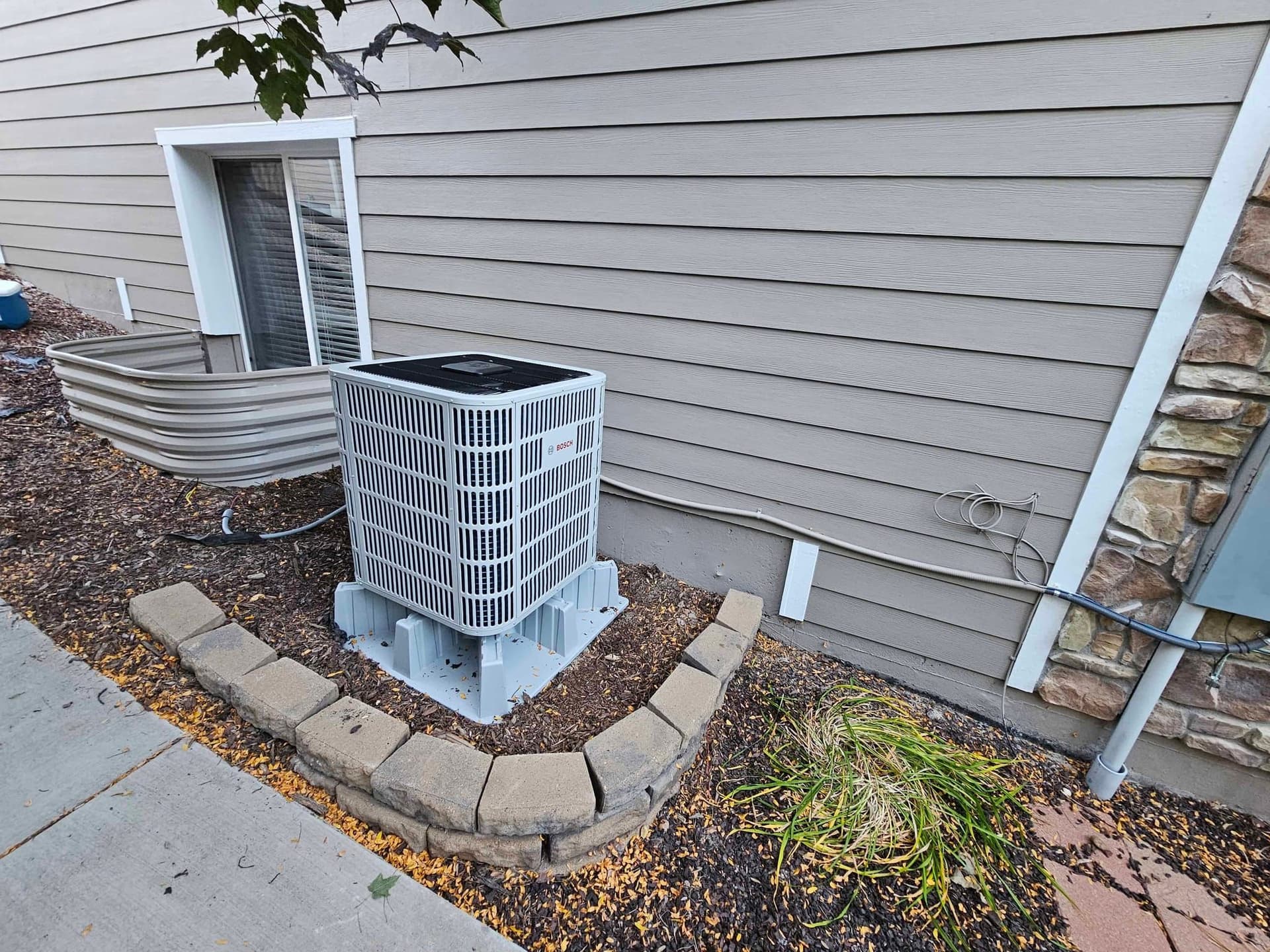
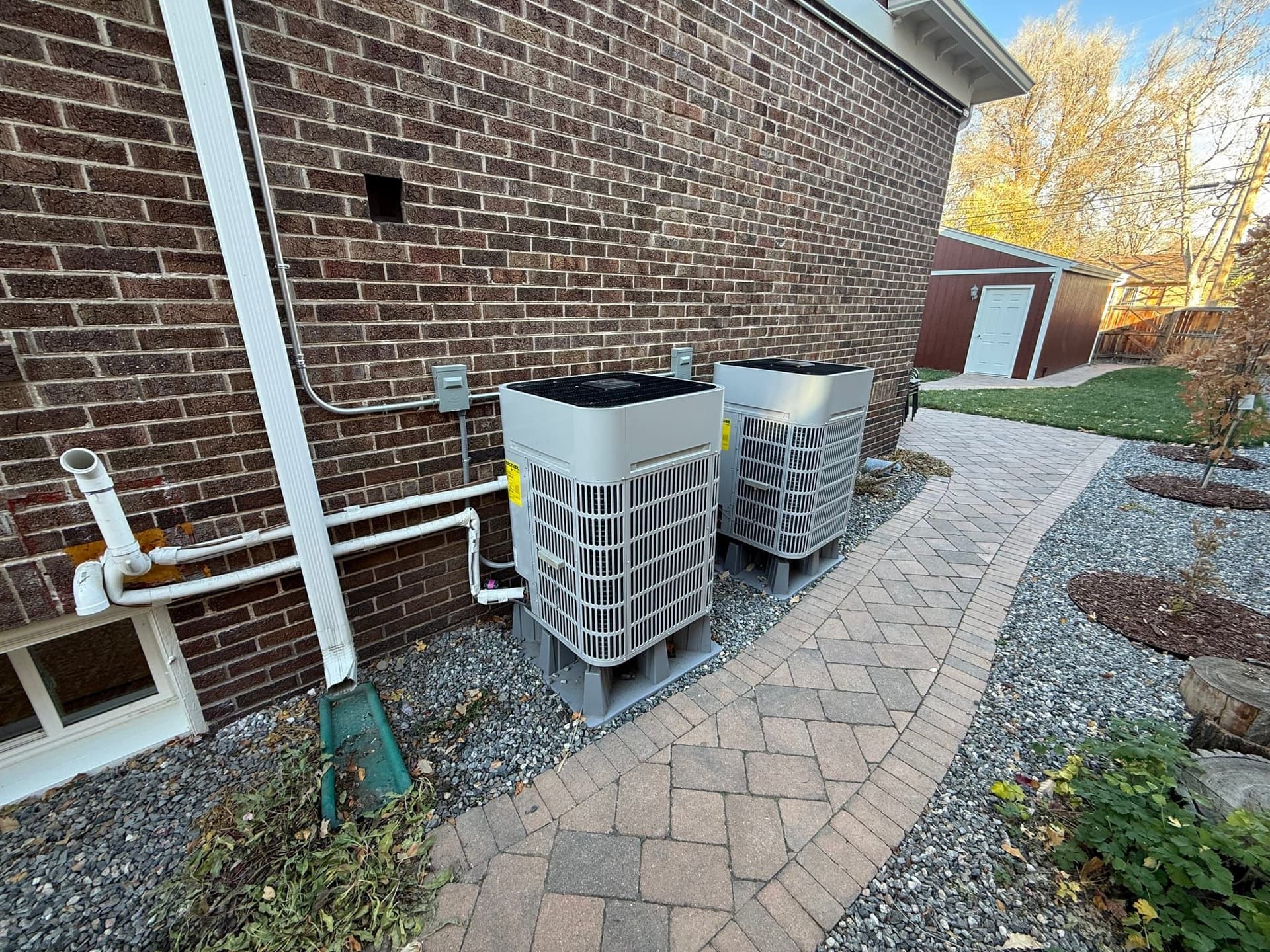
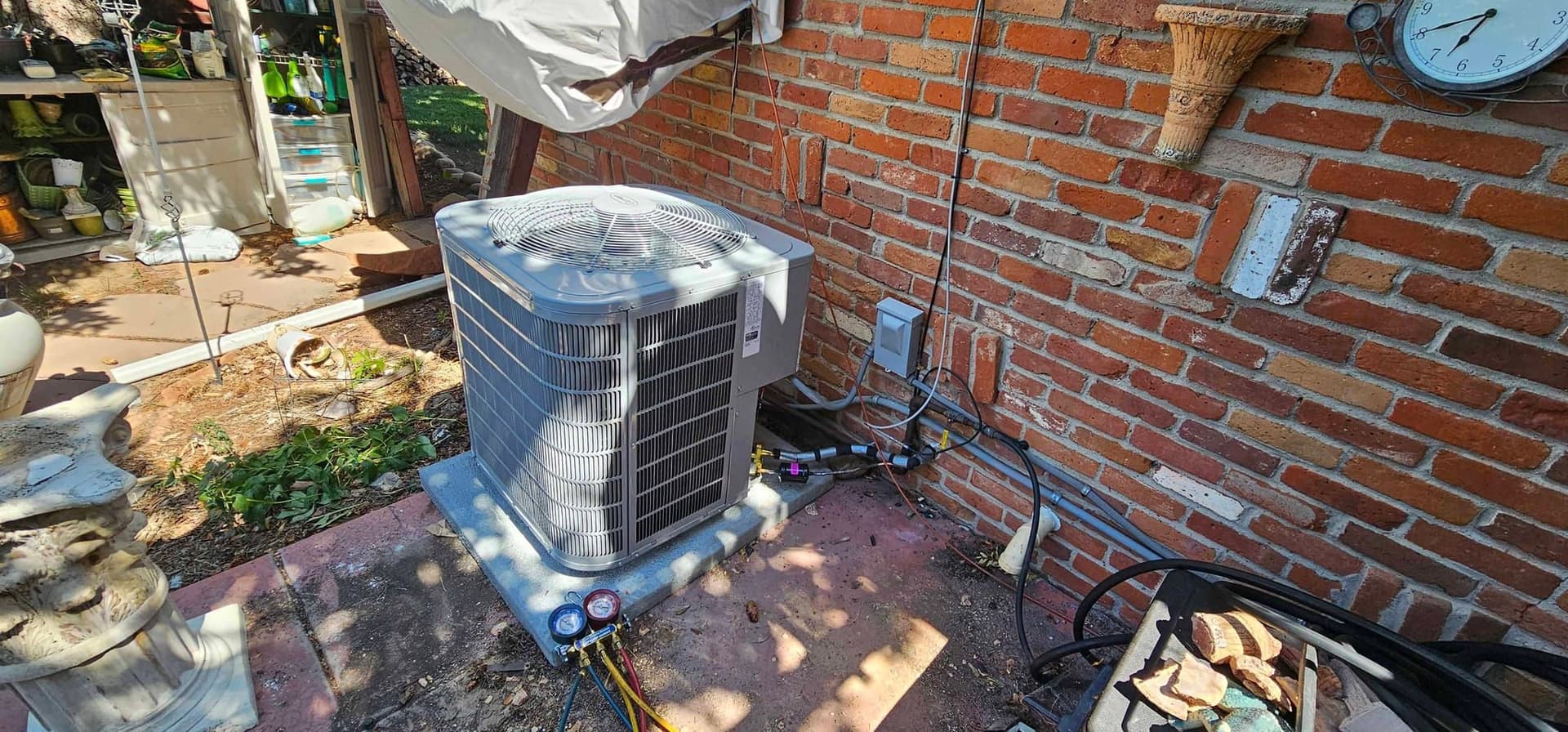
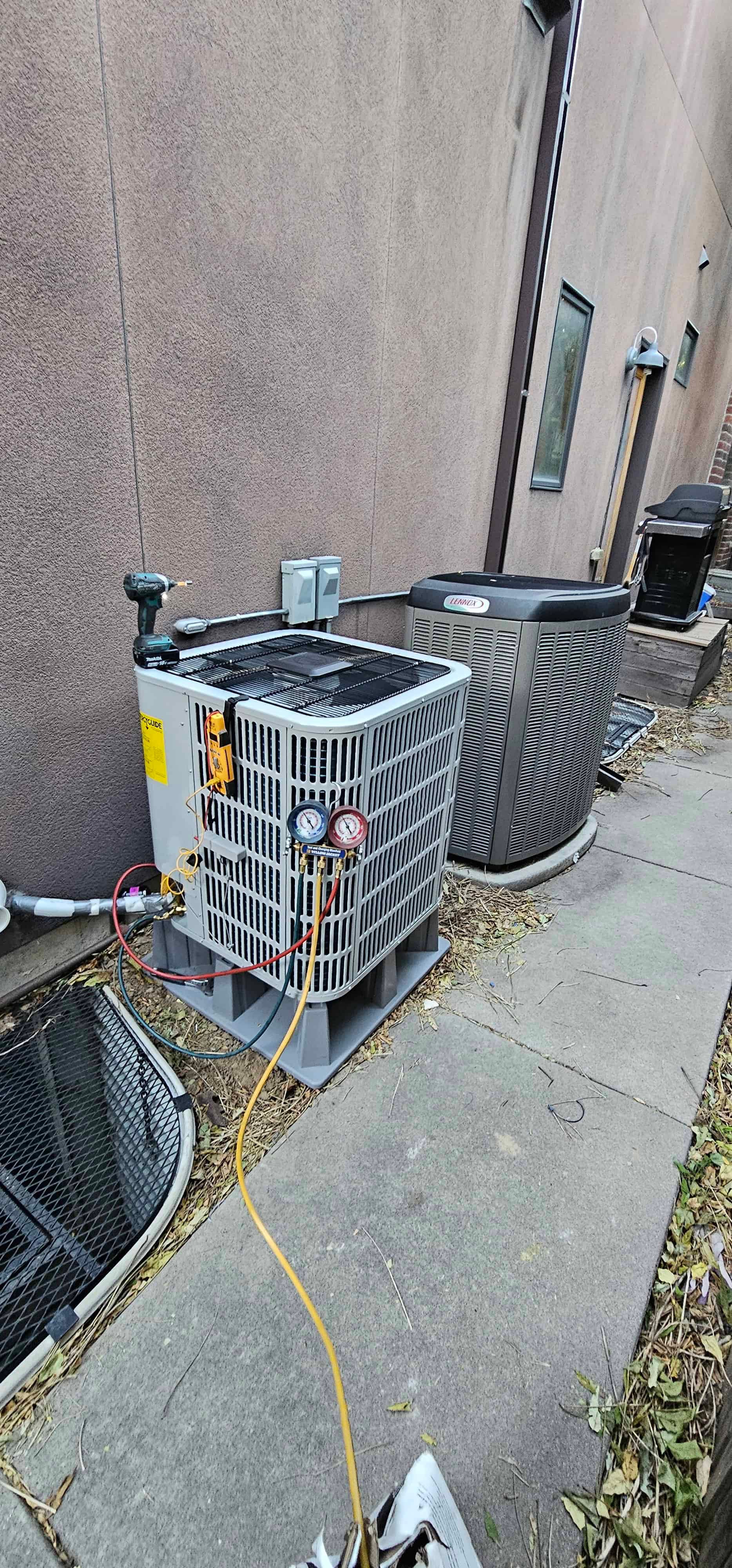
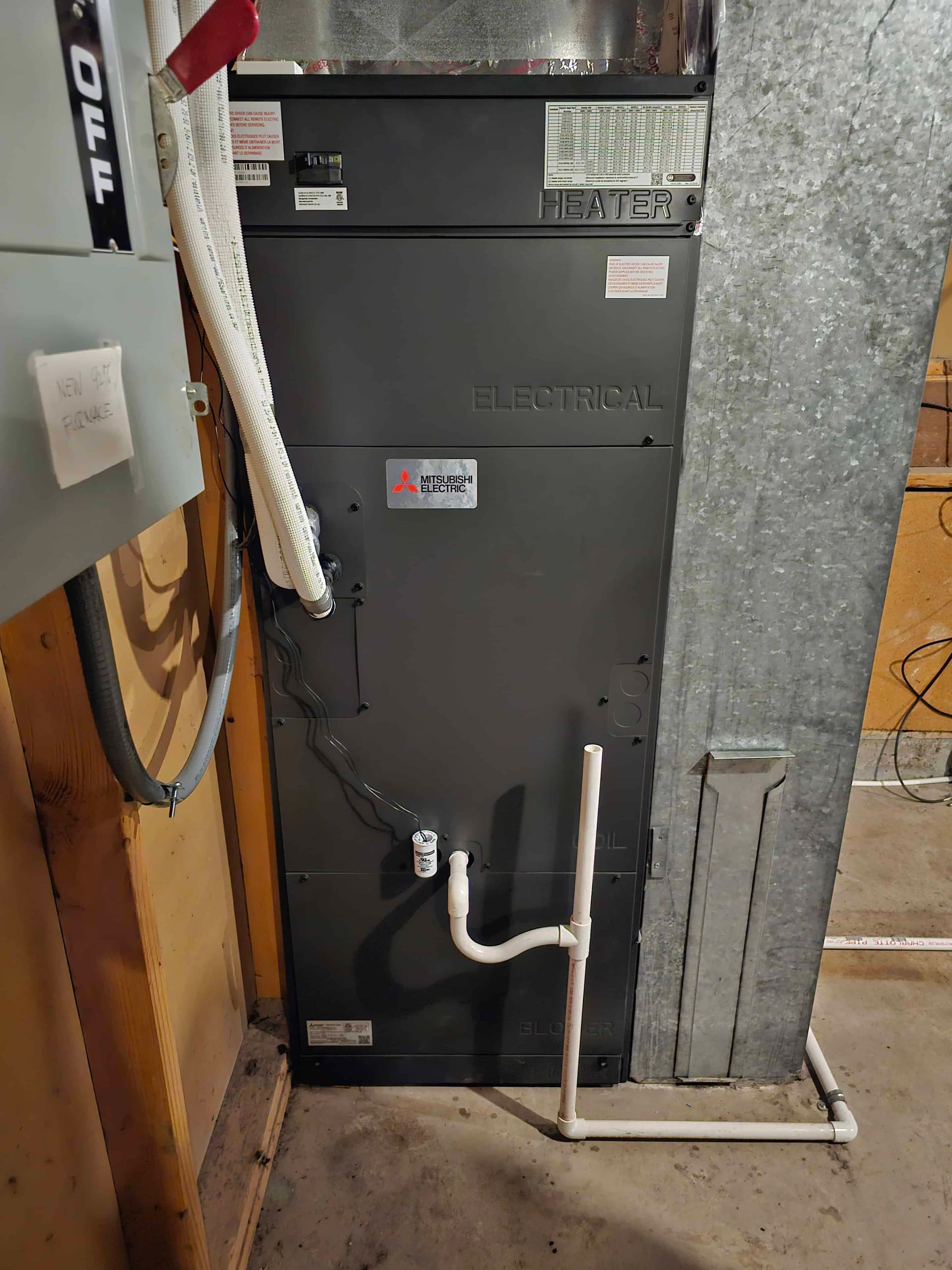

Dual fuel explained
What Does Dual Fuel Air Source Heat Pump Mean?
AnsweringYour Questions
Frequently Asked Questions
Common questions about heat pump installation in Denver. Can't find what you're looking for? We're a phone call away.
Was this page helpful?




